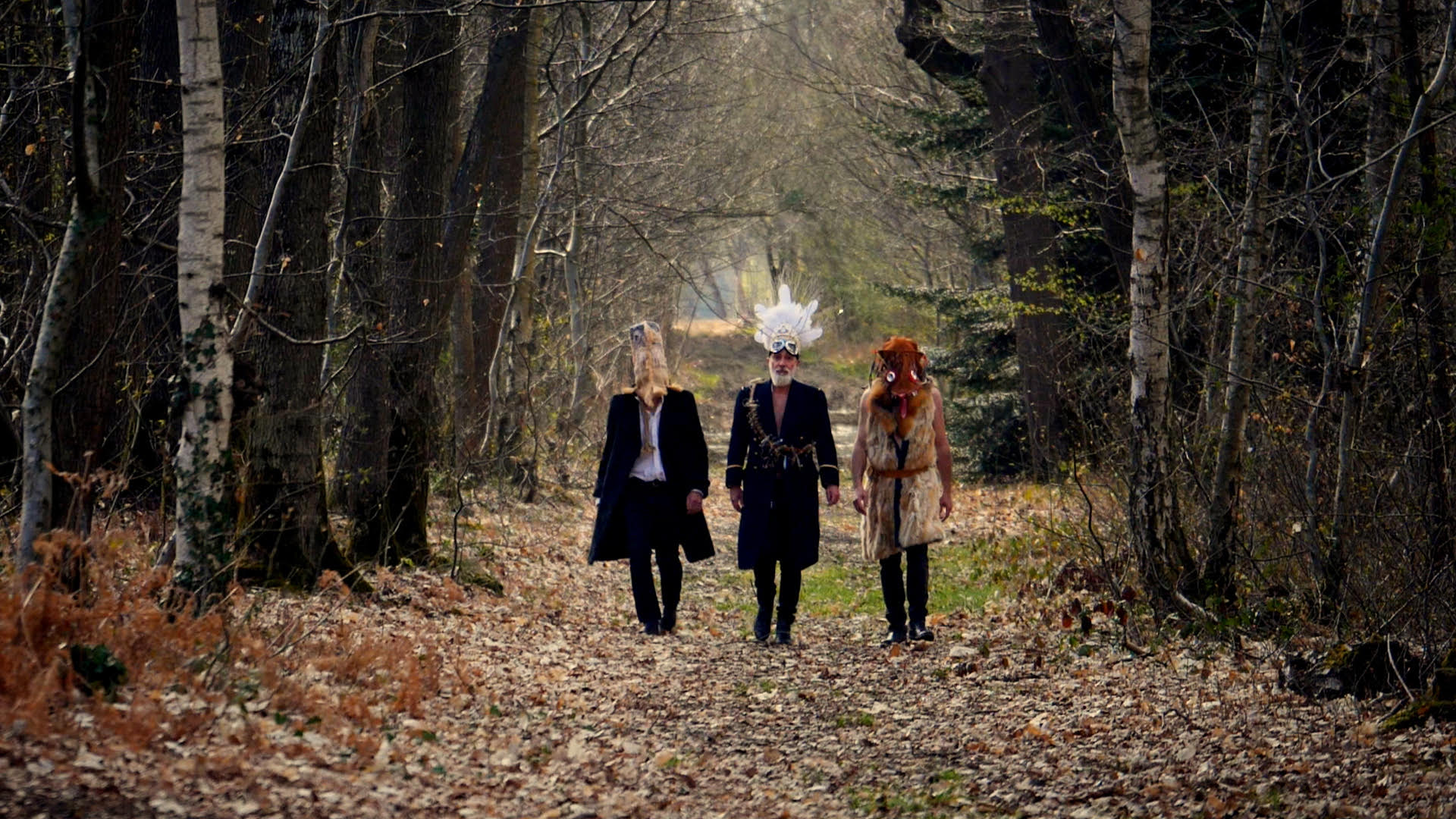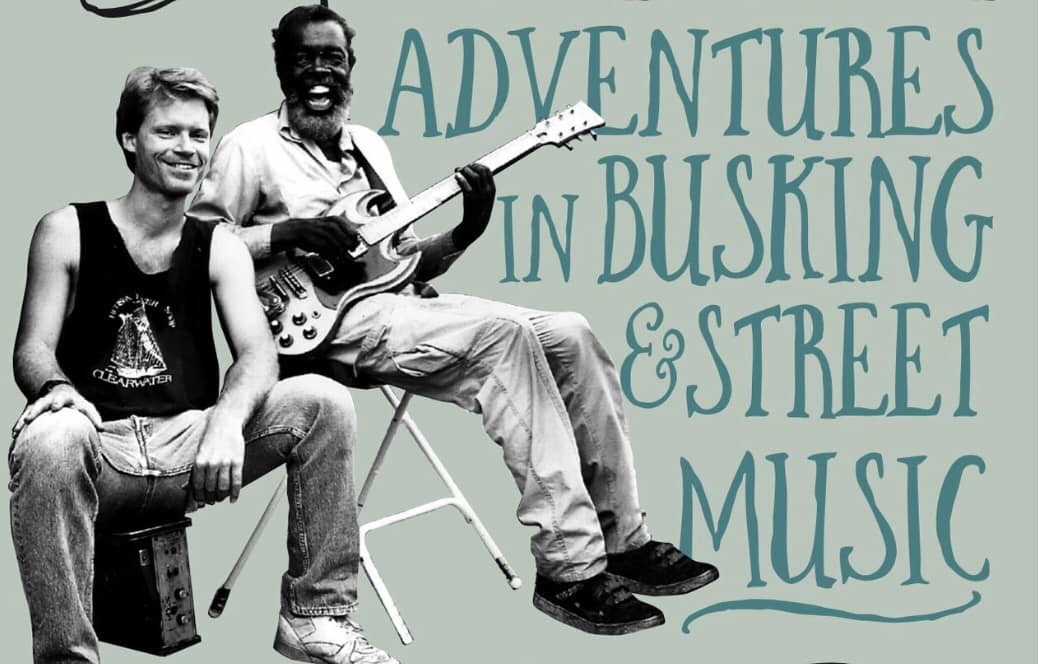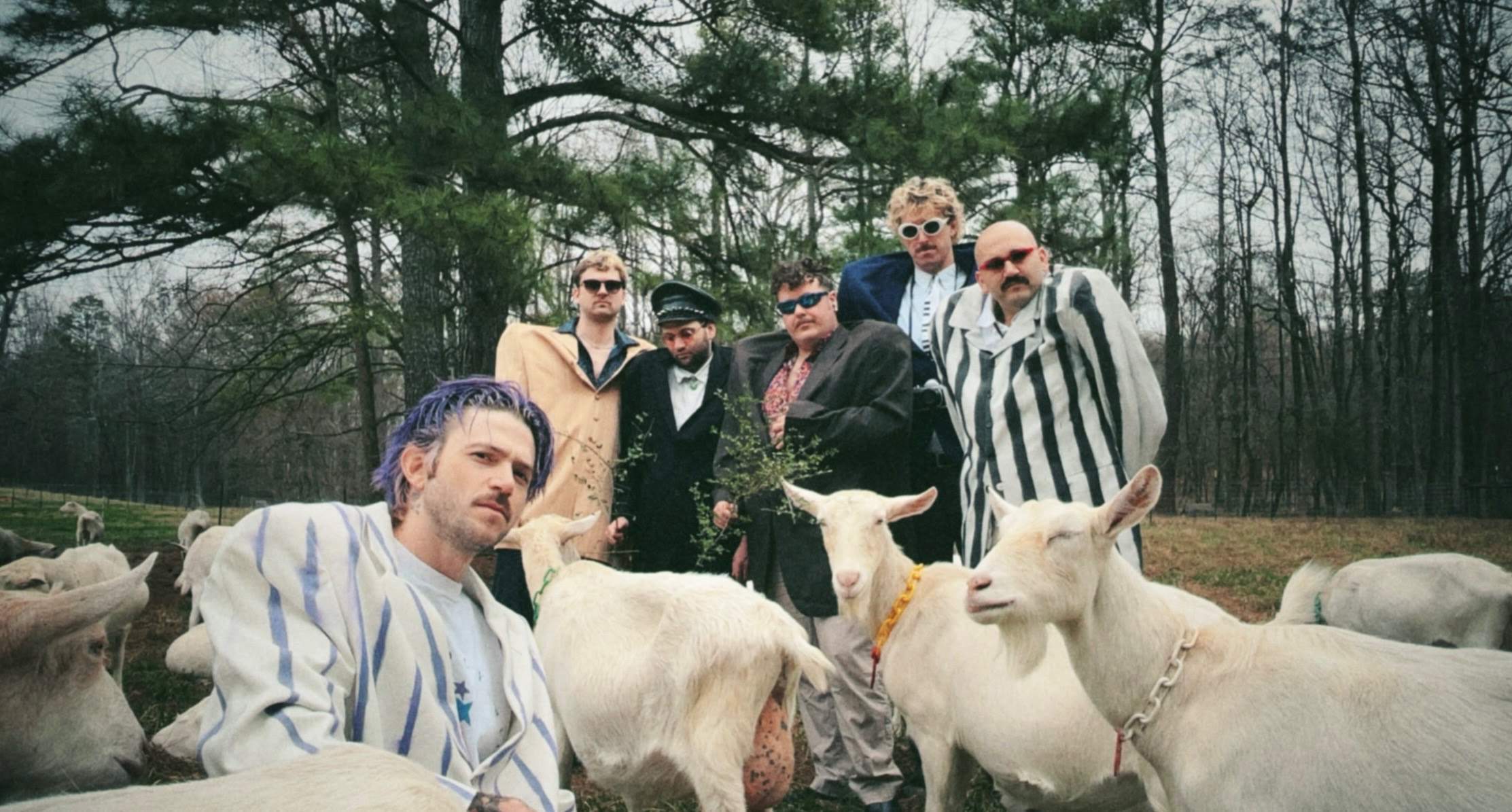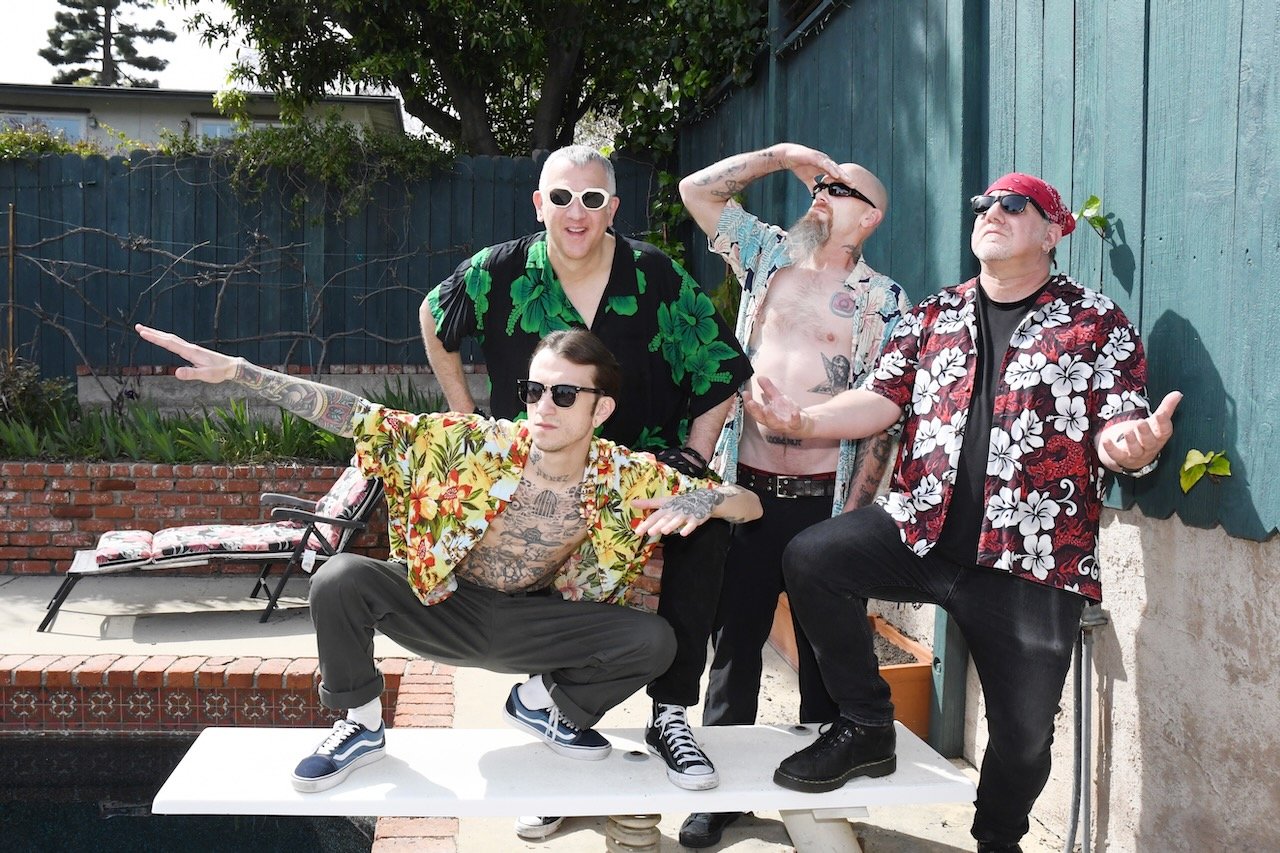Cheval Fou | Interview | New Release
Cheval Fou was one of the most important, prolific and authentic psychedelic outfits that thrived on the margins of the French underground during the first half of the 70s.
A precursor to the by now more well-known and equally outstanding space-rock formation NYL, Cheval Fou’s salvaged recordings are a testament to the purest made-in-Europe free-form, freak-out psychedelia. Just picture an amalgamation between Group 1850’s ‘Agemo’s Trip To Mother Earth’ and Amon Düül’s ‘Phallus Dei,’ with Dashiel Hedayatt dropping in for a quick jam, and you will catch a glimpse of that horse-headed ballerina in far-out space delivering drones with playfully sinister ferocity on a flying chess-board. Not at all surprisingly, as this iswhat Cheval Fou did from dusk to dawn over their 5-year long life (1970-1974) that was so intensely creative, and so good to be true that it just had to remain the distant echo of an entire scene’s unconscious. Cheval Fou’s rebirth in 2021 was met with enthusiasm by the press, albeit in a manner that was loosely connected with the band’s heritage and its contribution in the development of the French psychedelic scene. In defiance of the cultural politics that seek to institute a contrived divide between “old” and “new” music in contemporary cultural production, by inventing an untenable discontinuity that will eventually transpire as a populist epiphenomenon, Michel Peteau takes us on a memory trip to the formative years of a cornerstone of French, and europsychedelia at large, in light of the first ever vinyl reissue of Cheval Fou’s musical legacy by PQR-Disques plusqueréel.
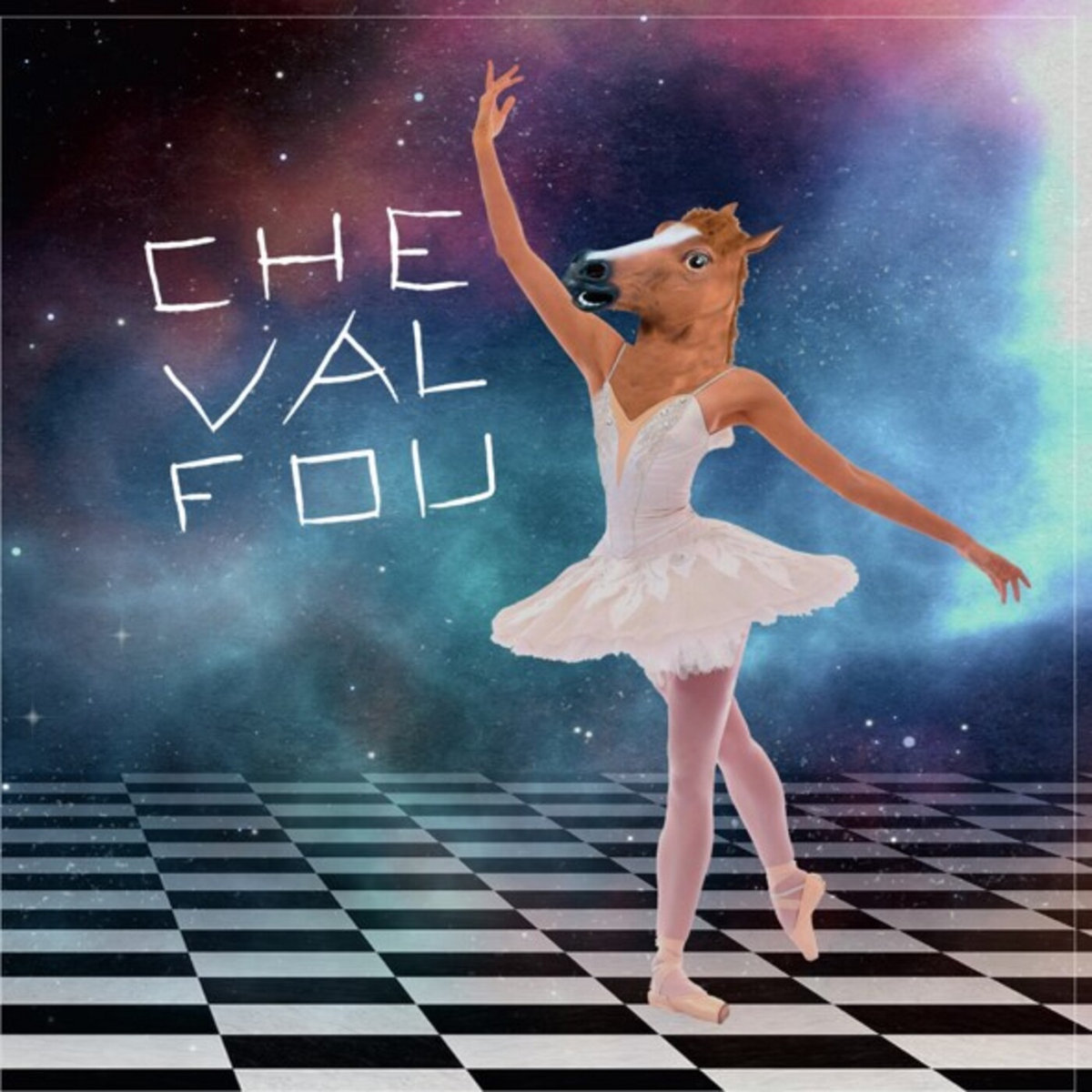
Disques Plusqueréel recently released Cheval Fou’s seminal 70s recordings in a limited edition of 300 numbered copies, in splatter vinyl, an open stargate to bonus tracks, and all of the above sheltered in a fold-out poster cover. And for the inner circle of their collector friends, only 50 copies include the Fouart Gallery, featuring 6 printed ‘Postcards from the Edge’.
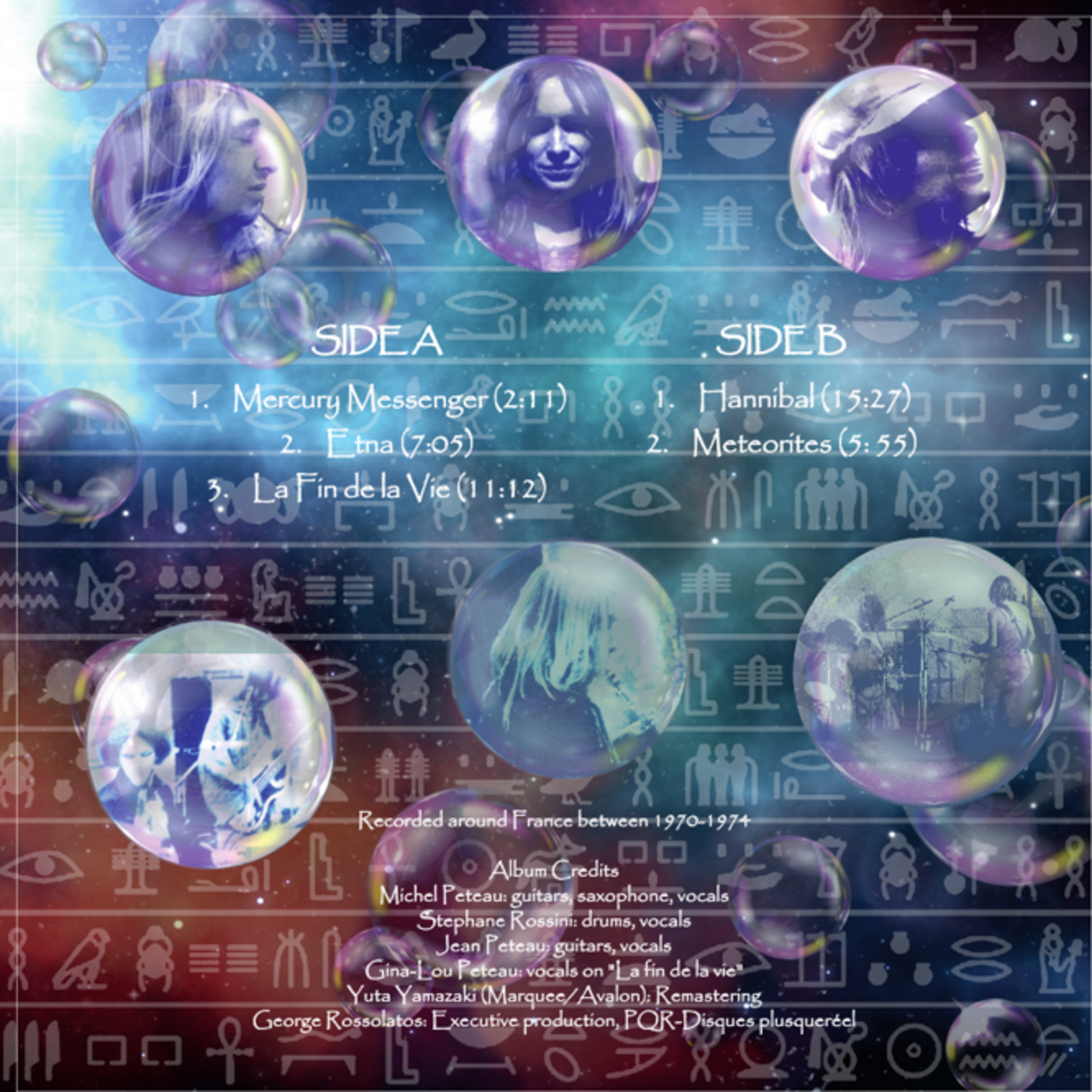
“We were part of a tribe”
When and where were the three main members of Cheval Fou born and raised?
Michel Peteau: I was born in 1954 in Paris. Jean Peteau born in 1952 in Paris. Stéphane Rossini born in 1953 in Paris.
What sort of cultural influences impacted your decision to engage in musical composition and the imagery you adopted?
We were all huge fans of The Who, Stéphane was Keith Moon, I was Townsend (we were 16) … Then we discovered psychedelic rock (Can, Hawkwind, Amon Düül, Pink Floyd …). We also were very impressed by the comics and the free press imported from America.
Cheval Fou adopted a unique approach to psychedelia, certainly free form and largely freak-out. Were there any other bands at the time playing such far-out and largely improvisatory music (e.g. Pataphonie, Bescombes/Rizet)?
There were very few bands in France, so we were all related or friends: Crium Delirium, Etron Fou Leloublan, Red Noise, Lard Free, Heldon, Jean-François Pauvros …
Given Cheval Fou’s eclectic approach, how difficult was it to book live shows? Were you paid or appeared mostly free for promotional purposes? How did you make a living during that period?
We found gigs thanks to our gears! There were very few bands with their own equipment at that time. We even owned our power generators, and light-systems, so we could perform anywhere on earth … We were part of a tribe, travelling around with a bunch of excited adults, including my father, Max Peteau, making and selling a free press paper called Le Pop. We also were booked in festivals. But I have to admit that I never wondered how to make a living before my early thirties!
Give us a vivid portrayal of the audience participation and response to your live performances? Having performed consecutively for various audiences and decades, how would you describe the feelings and images that were dominant in your live shows?
When psychedelic rock appeared in my life, it was something very new and exciting, a colorful world, something very appealing for young people like me, enclosed in their life, expected to spend an entire year in the army at 18’, trying to escape from the future to come.The wave was colorful and smelly, coming from esoteric literature, science fiction or spirits from India. When we were going to a psychedelic show back then, we felt like being part of a community, sharing the same sensitivity and feelings, far from any cerebral approach. No need to talk, just pure feeling. I loved it.
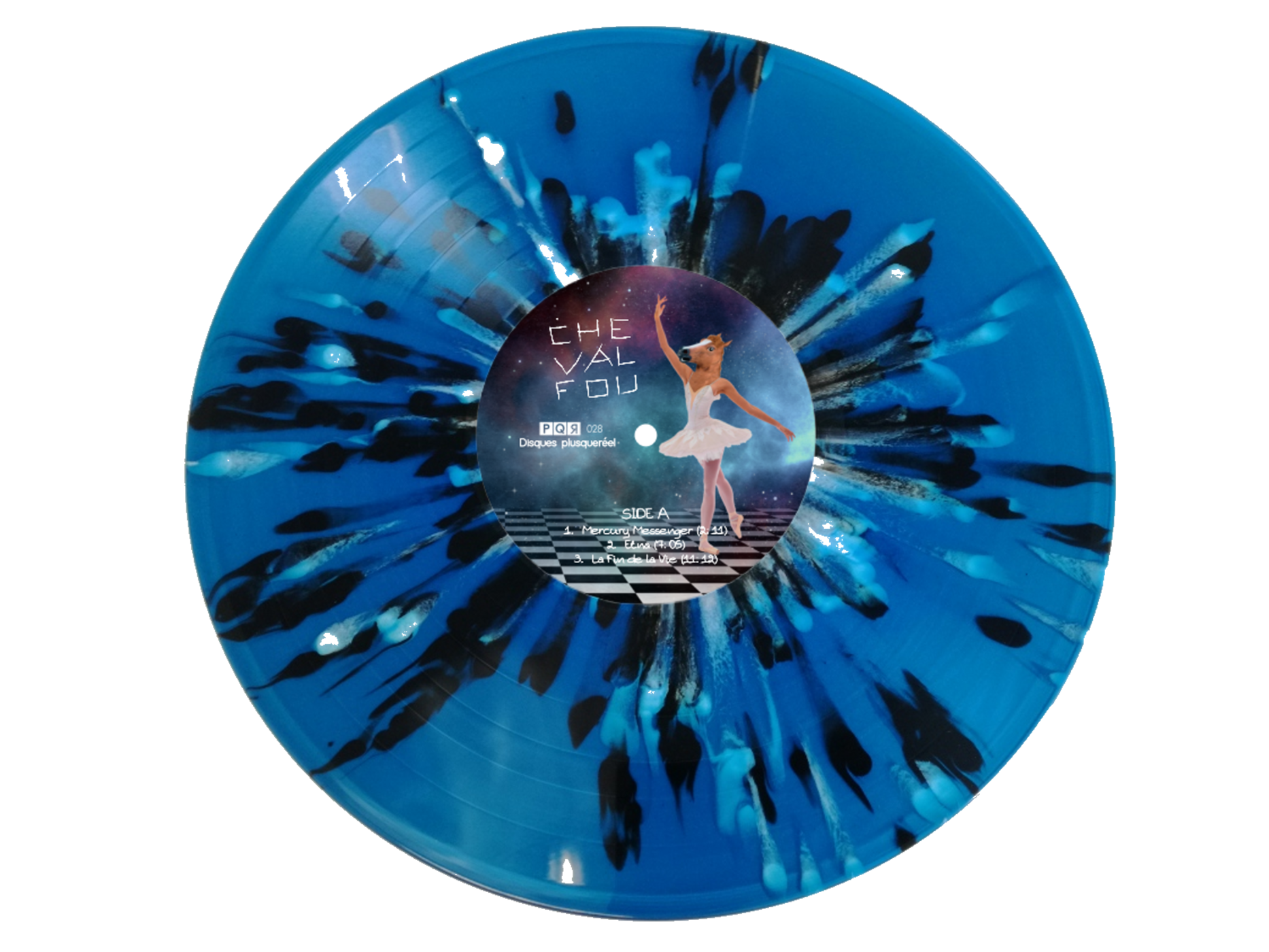
Which memorable shows/venues can you recall and why? What made them special for you? Please provide as specific dates, places as possible.
The Festival of Tabarka, Tunisia, in 1973. Cheval Fou was opening for Miles Davis! Mickael Henderson, his bass player, joined us on stage. I’ll never forget his generous and very powerful presence.
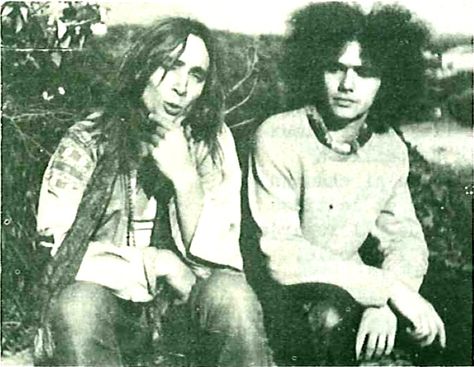
“Our first gig ever was as an opening act for the Grateful Dead in Paris”
Since it is difficult to imagine Cheval Fou opening for mainstream rock acts, if you ever did so can you describe the audience’s reactions and the headliners’?
Actually, our first gig ever was as an opening act for the Grateful Dead in Paris. I played feedback for an hour, fronting my amp to hide from the public sight …. and the public loved it and went crazy!
Did you ever face pressure from political agents? Social forces that attempted to marginalize you?
We were marginals from the start. My father, who was the head of the Tribe, was closely watched after when we were living in Paris. He went to jail a couple of times, for some articles edited in “Le Pop”. That’s the reason why the Tribe left Paris, and travelled around the country. It didn’t last forever, but it’s been a very fun youth to live!
Sound effects are prominent in your compositions, especially echo, delay, phasing. What prompted you to assign SFX so much weight in your compositions?
It’s true, we couldn’t imagine playing without our Binson Echo Chamber. When I got my first electric flanger pedal (Electro-Harmonix) no one had heard a sound like that! I felt like speaking my own words, every note was making sense and I was suddenly becoming very talkative … we could easily indulge in exaggeration, it transported us.
One era’s underground is another’s mainstream. Nowadays, with so many waves of prog and psychedelic music that have come and gone after the golden age of the 60s and the 70s, how would you position your early recordings?
We were experimenting, and became one of the first French psychedelic bands, and felt very close to groups like Hawkwind, Lard Free, Mahogany brain, Red Noise, Dashiell Hedayat, Gong, Crium Delirium, Magma, Etron Fou Leloublanc… Although most of these bands were never big in France, their sound defined an entire era.
Tell us more about your father’s first underground newspaper Le Pop. How many issues were released, how frequently, how was it distributed? When were its operations ceased? Do you have scans of its covers and contents? Was it a suitable vehicle for Cheval Fou’s music or too mainstream for you?
Editing a newspaper was just part of our way of life, and the center of our community. Articles, drawings, printing and selling for the Tribe …. And Cheval Fou was a daily soundtrack! As a band, we never appeared in the paper, except to announce our shows. My father was incorruptible, haha.




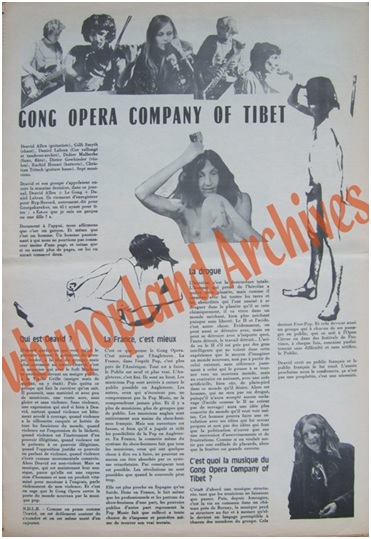
When did Cheval Fou officially dissolve and Nyl was born? In what respects Nyl’s music deviated from Cheval Fou and what was carried over from Cheval Fou to Nyl? What did the new musicians who joined you and Nyl bring to the table?
Coming back from the Tabarka Festival in 1974, my brother Jean Peteau decided to leave the band. Stéphane Rossini and myself settled in an isolated house near Paris where we played music constantly. We invited friends to come and share loud music with us. Jannick Top, Free Quentin, Olivier Pamela, Elisabeth Wiener, all these out-of-space people helped us to make Nyl happen. Dominique Blanc-Franquart was the sound man. This album, produced by Richard Pinhas, was recorded in one day.
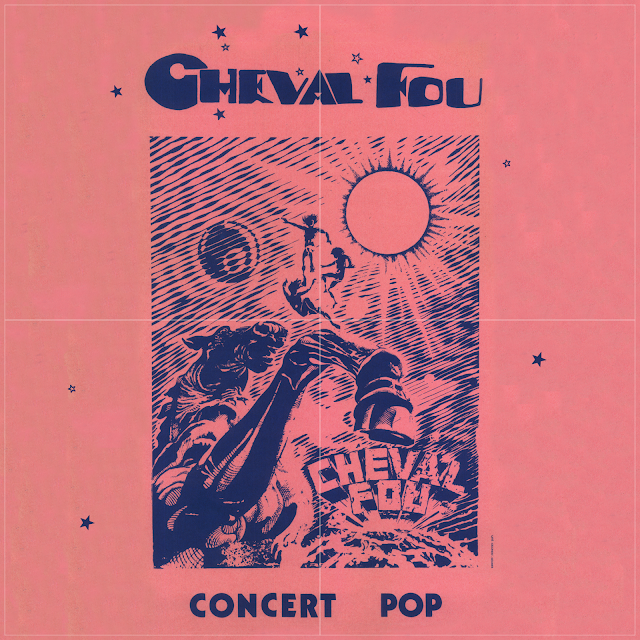
What did Stéphane Rossini and Jean Peteau do after Cheval Fou’s disbanding? Did they continue their involvement in music production or did they follow new career paths? Please give us a timeline with key milestones regarding Cheval Fou members’ professional and musical lives after Cheval Fou.
Jean Peteau stopped playing music and became a film director Memento de Jean-Max Peteau (see here). Stephane stopped playing to study Egyptology.
George Rossolatos
Headline photo: Cheval Fou | Photo by Olivier Séror
PQR-Disques plusqueréel Official Website / Facebook / Bandcamp / YouTube
Nyl | Cheval Fou | Interview | Michel Peteau

